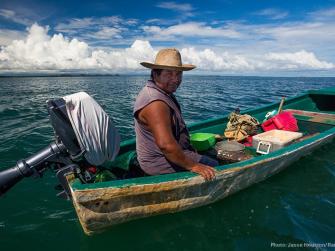Fishing rights helped curb overfishing in Belize
When resources for oversight are limited, fishermen can be empowered to be stewards of the fish population's health

Credit: Jason Houston
Problem
For decades, Belizean fisheries have been depleted by illegal fishing and overfishing. Driven by short-term needs, fishermen used gear such as gillnets, and the number of fishermen grew unsustainably. Fishermens' livelihoods suffered – it could take a whole season to catch what used to be a week's worth of spiny lobster.
Solution
In 2011, we teamed up with local partners and other environmental groups to help local fishermen transition to a different management system. They get dedicated rights to fish, in exchange for respecting no-take zones – protected areas where fishing is prohibited – and other regulations. The fishermen collaborate on self-enforcement, submitting catch data for accountability. They also extend the reach of underfunded officials as rangers or custodians.
Results
Fishermen report their catches have gone up, and illegal fishing has dropped 60 percent. Thousands of Belizean fisherman asked for a nationwide system of rights-based management, which the government implemented in 2016. In March 2018, the government announced it will expand its network of no-take zones from about 3 percent to more than 10 percent by the end of 2018.
What's next?
We're working around the world to help sustainable fishing become the norm, focusing on 12 governments that account for a majority of the world's catch. Your support can help us end overfishing.










